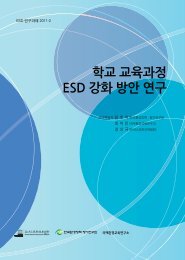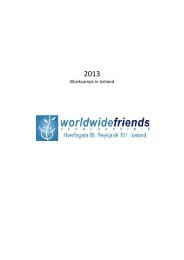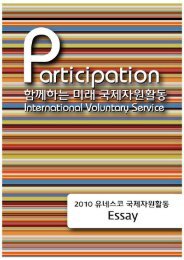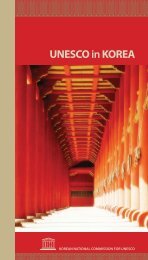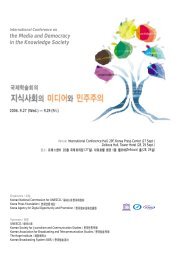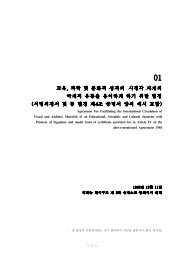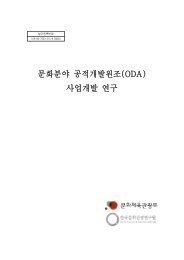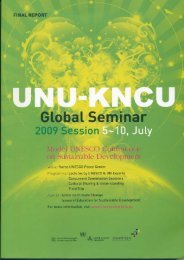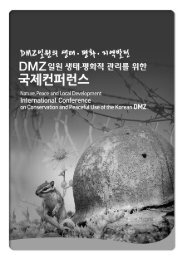íëìë³´ë2012문íì ë°ì ë¼ì´ëí ì´ë¸.pdf - ì ë¤ì¤ì½íêµììí
íëìë³´ë2012문íì ë°ì ë¼ì´ëí ì´ë¸.pdf - ì ë¤ì¤ì½íêµììí
íëìë³´ë2012문íì ë°ì ë¼ì´ëí ì´ë¸.pdf - ì ë¤ì¤ì½íêµììí
You also want an ePaper? Increase the reach of your titles
YUMPU automatically turns print PDFs into web optimized ePapers that Google loves.
process. As the guardian of the 2003 Convention for the Safeguarding of the Intangible<br />
Cultural Heritage, UNESCO is well positioned to help address this challenge. We believe in<br />
the invaluable role of the intangible cultural heritage as a factor in bringing human beings<br />
closer together and ensuring exchange and understanding among them, contributing thereby<br />
to dialogue, mutual respect, international cooperation and peace. We therefore propose to<br />
undertake an innovative effort – in close collaboration with the Dozo community, the Ivoirian<br />
authorities, sister United Nations organizations and Ivoirian civil society – to safeguard Dozo<br />
intangible cultural heritage (ICH).<br />
2. The second key area in which culture is key is Inclusive Social Development<br />
- Culture is central for communities and individuals, who ask for better governance<br />
and increased cultural choices while seeking to ensure that they have a voice in cultural<br />
decision-making.<br />
- Development needs to be relevant to all, including local communities and<br />
indigenous peoples, with appropriate recognition of cultural rights, traditional knowledge<br />
systems, cultural heritage and the rich diversity of environmental and sustainability<br />
practices. Culture makes development more sustainable, inclusive and equitable.<br />
Culture is crucial for social cohesion & national ownership<br />
Here, I would like to share an example of the MDG-F Culture and Development project<br />
implemented in Ecuador by several UN agencies and national counterparts. Among the main<br />
successes of this project was the strengthening of cultural and social rights, increased political<br />
participation, the promotion of equal opportunities and reduced discrimination against<br />
marginalized groups. This was mainly done through the approval of the National Anti-<br />
Racism Plan by the President of Ecuador, the support for the bill structuring indigenous and<br />
ordinary justice systems, the submission of proposals for the creation of equality councils,<br />
and national and local workshops on anti-racism and racial equality policies.<br />
Moreover, national policy on gender and interculturalism was developed, and cultural<br />
sensitivity was incorporated into the national health system through capacity-building and<br />
infrastructure development to ensure culturally appropriate medical services, cultural<br />
education strengthened through the publication of dictionaries in native Ecuadorian languages.<br />
Indeed, the linkages between culture and health – and of course social development – was<br />
promoted through the establishment of an intercultural health system in the province of<br />
Sucumbios to raise awareness about intercultural health and culturally appropriate childbirth



